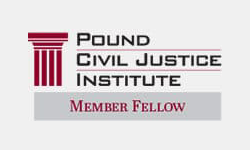Divorce can be an incredibly complicated and emotional endeavor. As your family is thrust in to the Rhode Island Family Court system, it can be confusing to know what to expect during the associated legal processes. To help you make sense of what is to come, our firm has broken down the Rhode Island divorce process into a simple to use guide that identifies the main issues at hand and addresses your concerns.
Should I Hire a Lawyer?
In most cases, yes. While you may choose to represent yourself “pro se,” this is highly inadvisable. The divorce process involves a myriad of different applicable laws, deadlines, and procedures that can expose you to a large potential for error. While some minor clerical mistakes can result in delays, other errors can potentially affect your divorce settlement and subject you to penalties. An attorney can handle the associated paperwork and legalese on your behalf, as well as ensure your interests are protected at all times throughout your case.
What are Acceptable Grounds for Divorce in Rhode Island?
Rhode Island is a no-fault divorce state, meaning that couples do not need to cite any sort of misconduct by either spouse in order to pursue a divorce. Most divorces within the state are granted due to “irreconcilable differences,” or simply because spouses do not get along. Divorces that are filed on grounds of fault such as adultery or abuse are typically more contested matters. The only requirement for divorce is that you or your spouse must have lived in Rhode Island for at least one year prior to filing for divorce. Certain exceptions to this rule apply, such as instances in which a spouse is serving active duty in the military but lived in Rhode Island before enlisting.
What Issues Must Be Addressed in My Divorce Arrangement?
Once you and your spouse have retained legal representation and have filed for divorce, you must negotiate the terms of your divorce settlement. The following issues must be addressed:
- Asset & debt division: Unless wrongdoing is alleged, all assets and debts acquired during the course of your marriage are to be divided equally. This includes real estate, property, vehicles, cash assets, personal belongings, retirement accounts, pension plans, securities, stocks and bonds, and jointly owned businesses. Assets and debts that were acquired or accrued prior to your marriage or after the date of your separation are generally considered separate and are not subject to equitable distribution. The division of marital assets is frequently one of the most contentious issues during the divorce process.
- Alimony: The higher-earning spouse may be required to make alimony or spousal support payments to the lower earning spouse on a temporary or permanent basis, depending on the length of the marriage, the lifestyle experienced during the marriage, and the earning capacity of both spouses. Alimony is generally rehabilitative in Rhode Island, meaning that it is granted only for a short period of time to help a spouse get the education or training they need to find gainful employment. Indefinite spousal support payments may be granted if a dependent spouse is of considerable age or poor health, or if the paying spouse is found to have subjected the dependent spouse to some form of malevolent behavior during the marriage.
- Custody & visitation: If you and your spouse have minor children, custody and visitation schedules will need to be established. It is not uncommon for couples in Rhode Island to receive joint custody of their children, allowing each parent to maintain a say in their children’s upbringing. Sole custody may be awarded to one parent if the other parent is deemed unfit to care for their child, though this will depend on the unique circumstances of your case.
- Child support: The parent that receives physical placement of the child or children must receive child support payments from the non-custodial parent to help offset the cost of raising the child. Child support is calculated by a formula based on the income of the parents and may not be waived by the custodial parent.
These issues may either be negotiated by you and your spouse in an out-of-court uncontested divorce or through contested litigation, though divorces rarely end up going to trial in Rhode Island. Collaborating with your spouse towards an uncontested divorce settlement is greatly preferred over a contested legal battle since it can save you a considerable amount of time, money, and stress.
When Will My Divorce Be Finalized?
Whether you and your spouse have negotiated the terms of your divorce or are looking to pursue litigation, there must be a court hearing of some kind in order to finalize your divorce. All divorce cases are initially scheduled for an uncontested hearing within 90 days of filing for divorce. Once a hearing or trial has been held, judge will file a temporary decree with the court that lists the court’s findings and decision. After 90 days, the Final Decree will be entered. You will remain married to your spouse until the Final Decree is entered.
Divorcing? Call 401-400-4254 Today
If you and your spouse have decided to dissolve your marriage, the Rhode Island divorce attorneys at TJC • ESQ. are here to help. Backed by numerous positive client testimonials and more than 30 years of family law experience, our firm can help you and your spouse pursue an amicable separation and ensure your rights are protected during this difficult time.
We proudly offer free case reviews to all who approach us for help. Schedule yours today.










